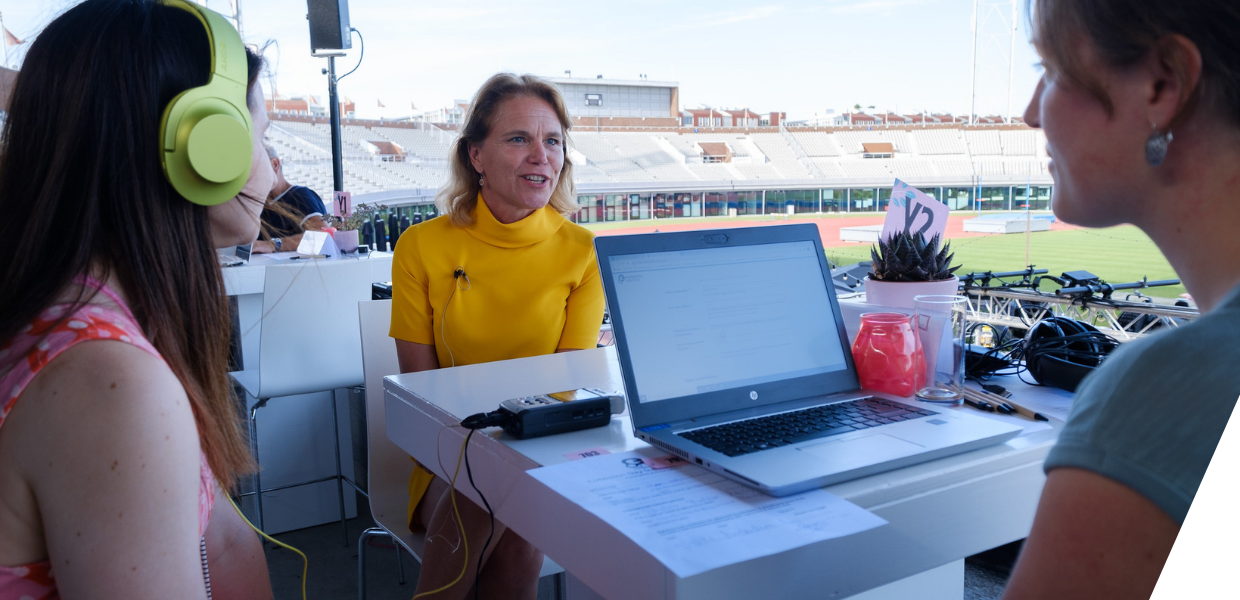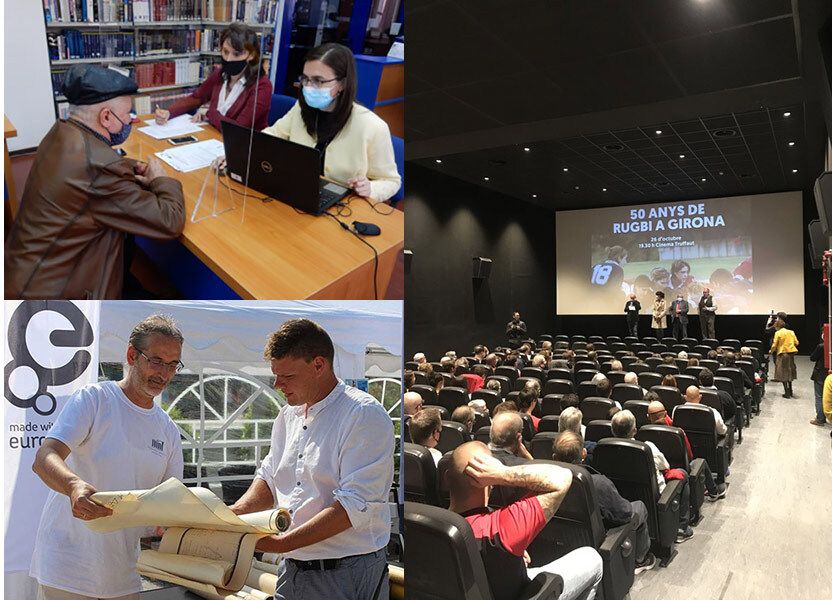The Europeana Sport Generic Services project was proposed during 2019 and awarded CEF Telecom co-funding in mid 2020. Among other activities, the project planned to host a series of events across Europe, inviting members of the public to participate and share their sporting stories. Europeana's previous experience of hosting collection day events such as these has been very rewarding, with many people attending to share their personal histories, memories and reflections, and ultimately contribute to Europe’s shared cultural heritage.
However, the COVID-19 pandemic threatened to curtail our plans. We were unsure whether we would be able to hold the events planned under the project, or whether people would want to attend them.
Nonetheless, through flexibility and adaptability, this year, 10 in-person events were able to take place in France, Hungary, Ireland, Italy, the Netherlands, Romania, Spain and the United Kingdom. Events were held in libraries, museums, archives, online, at a sporting event, in a school and at a stadium, and when the public health situation allowed.
Keeping in person events safe
A priority for all the in person events was the safety of organisers and participants. At the first two in-person events held in the 'Octavian Goga' Cluj County Library in Romania, an appointment system was used to minimise the numbers of people attending at any one time. Librarian Anca Docolin says, 'Our safety preparations included plexiglass screens, masks and gloves, and disinfectant available for everyone. The event was well-received by our visitors, who brought a variety of objects about a wide range of sports.'
Organisers also used a variety of locations to ensure that the events could be well managed. Instead of inviting a public audience to a venue, in September Michael Culture Association held a collection day in Polangis primary school in Joinville-Le-Pont, a suburban city 20 minutes away from Paris. Michael Culture's Marie Hartmann explains that this allowed a workflow which ensured the pupils and organisers remained safe: 'One by one, they presented their story and object, and came to a classroom for us to photograph.'
Inviting the public
When it was possible and safe to invite the public to share their sporting memories at these events, the experience was rewarding for both participants and organisers. In October, the CRDI Ajuntament de Girona held an event relating to the city's rugby club history where more than 100 former players and members came together to share their memories. Organiser David Iglésias says, 'It was amazing to see how the rugby players were interested in preserving their stories. It became very clear how people value the work of archives, as a vital (and accessible) part of the city's life.'
The National Archives of Hungary organised an event in Balatonfüred, alongside a popular sailing race. Senior Archivist Dorottya Szabó says, 'This event was an opportunity to bring culture and archives closer to people. With the conversations, the presentation of the archives and the collection of stories related to sports and sailing at Lake Balaton, we were able to reach out to many people. We received countless positive feedback during the event'.
EPIC The Irish Emigration Museum combined hosting a series of events over summer 2021 with interviewing some contributors online. Senior Curator Nathan Mannion says, 'We’ve learned that there simply is no substitute for speaking directly with those who have stories and objects to share and that the interview element is critical'.



